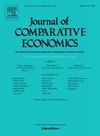Management practices and energy efficiency: Evidence from firms in China
IF 2.8
2区 经济学
Q1 ECONOMICS
引用次数: 0
Abstract
Do well-managed firms use energy less intensively in developing countries? Using data from the World Management Survey, we investigate whether there is any relation between firms’ management practices and energy efficiency within China. We find that firms that are competently managed use substantially less electricity: a one standard deviation improvement in management practices is associated with a 14.9% reduction in usage intensity. The management ‘premium’ is also significant after accounting for policy effects, with well-managed firms regulated under an energy policy reducing electricity intensity significantly more than the less-well managed firms. However, the general management-energy relationship is not significant for fossil fuels. Management quality is non-monotonically related to different quantiles of energy intensity usage. Overall, there is evidence of management benefits to energy efficiency, but these are mainly restricted to electricity utilization.
管理实践与能源效率:来自中国企业的证据
在发展中国家,管理良好的企业对能源的使用强度是否较低?利用世界管理调查的数据,我们调查了中国企业的管理实践与能源效率之间是否存在任何关系。我们发现,管理得当的公司使用的电力大大减少:管理实践中一个标准差的改进与使用强度降低14.9%相关。在考虑政策影响后,管理“溢价”也很显著,在能源政策下受到监管的管理良好的公司比管理不善的公司更能显著降低电力强度。然而,对于化石燃料来说,一般的管理-能源关系并不显著。管理质量与能源强度使用的不同分位数呈非单调相关。总的来说,有证据表明管理对能源效率有好处,但这些好处主要限于电力利用。
本文章由计算机程序翻译,如有差异,请以英文原文为准。
求助全文
约1分钟内获得全文
求助全文
来源期刊

Journal of Comparative Economics
ECONOMICS-
CiteScore
4.40
自引率
0.00%
发文量
66
审稿时长
45 days
期刊介绍:
The mission of the Journal of Comparative Economics is to lead the new orientations of research in comparative economics. Before 1989, the core of comparative economics was the comparison of economic systems with in particular the economic analysis of socialism in its different forms. In the last fifteen years, the main focus of interest of comparative economists has been the transition from socialism to capitalism.
 求助内容:
求助内容: 应助结果提醒方式:
应助结果提醒方式:


